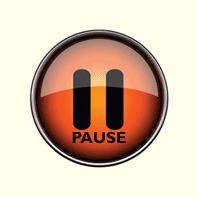| |
Rejection letters
 They
rejected you, huh? Well they rejected me too; a hundred times
or more. In fact, I stopped counting a long time ago. They
rejected you, huh? Well they rejected me too; a hundred times
or more. In fact, I stopped counting a long time ago.
For a
writer, especially a fiction writer, rejection letters are the
norm rather than the exception. Unless you're really lucky,
or exceptionally talented (or a little of both), you're going
to regularly have your manuscripts or sample chapters sent back
with soulless, heartless slips of paper telling you that:
Sorry this is not for us!
Usually,
there's another line or two telling you that "this is just one
opinion" and that it's a "highly subjective business"; So do
try elsewhere!
If you're
lucky, or if you've submitted your mss to a sensitive
agent or editor, you might get a handwritten line telling you
something about why they rejected it.
Nice
title and beginning, and clearly you write well, but I'm afraid
I wasn't sufficiently excited by this novel.
It's
a highly competitive market, and I need to be absolutely certain
that a project is exactly right for me. Feel free to submit
other material in the future.
There
are endless variations. You'll discover them for yourself as
your career progresses. What you need to do, aside from
consoling your feelings, is to understand why you've
been rejected. Here are some of the possible reasons. Grit your
teeth.

Want to read more?
There are over 25,000 words of
writing tips and advice on my website. I've spent months
writing these pages, and years refining them. I'm happy to
share my professional knowledge with you. But like everyone
else, I need to capitalise on my skills and efforts.
For just £1.99 I'll send you my entire
MR EDIT'S WRITING ADVICE FOR AUTHORS as a .pdf file. Just follow the link below, or above, and you'll be taken to PayPal. You don't need an account; just a credit card or a
debit card.
You'll generally receive my writing
guide within an hour. But occasionally technical glitches
from PayPal delay this for up to 24 hours.
Either way, you'll receive 25,000
very helpful words that will make you a better writer, will
give you fresh insight into your work, and
will improve the chances of a literary agent or publisher
accepting your manuscript.

Mr
Edit YouTube videos
Meanwhile, here are
some of my You Tube videos that might be of interest to you.
Hope you enjoy them.

Mr Edit. Let's talk about dialogue
https://youtu.be/KG0CLm1S9Rs

Mr Edit. Pitching fiction to a literary
agent.
http://www.youtube.com/watch?v=yy698w2Ooc8

Mr Edit. 5 Minute Fiction Fix.
https://youtu.be/y6OPUfcDH90

Mr Edit. Let's talk about tautology.
http://www.youtube.com/watch?v=_zhoBLImV6U
Links for
writers
Preditors & Editors.
Here's where you can check out the credentials of literary agents and
publishers. A must for any writer.
http://pred-ed.com
Creative Helps. Helpful
resource for the creative community. Articles, links and tips.
http://www.creativehelps.com/products.htm
Nick Daws' Writing Blog.
Lots of useful posts on all aspects of writing, both for print and online,
plus a guest post for anyone who wants to make a contribution. Check it
out.
http://www.mywritingblog.com
|
|
Creative writing
●
Writing tips
●
Plotting a novel
●
Finding a literary agent
●
Choosing a literary agent
●
Agent query letters
●
Inspiration for writers
●
Rejection letters
●
Manuscript critique
●
5 minute fiction fix
●
Proof reading
●
Writer's block
●
How to get published
●
Active & passive voice
|
Special features

Darley Anderson,
top UK literary
agent, on books,
publishing and success

Zoë Sharp,
creator
of the
action-packed
Charlie Fox series of books

Jeff Kleinman,
New York literary agent,
talks shop

Crème de la Crime:
An interview
with
Lynne Patrick,
publisher and
managing editor of a smaller—but
essential—British
publishing
house.
Submissions
tips
Tip
1
Try
"angling"
the synopsis from the viewpoint of other characters. For example,
Conan Doyle's Sherlock Holmes books could be stories about Dr
Watson as much as Holmes himself. Therefore, you could, in theory,
make either character the protagonist (hero).
At the very
least, it might help you turn the spotlight on your other characters
to see just how strong, or how weak, they are. A really good
novel might well have a number of characters who could each
play the lead. That's what helps make soap operas so popular;
everyone's a hero. And a villain.
Tip
2
In
your synopsis, always reveal the ending. The temptation is to
maintain the suspense so that the agent or editor feels
the tension. But professionals want to see what the pay-off
is before they spend the next week hacking through your MS.
Be warned.
Tip
3
Remember that
"theme" is important. Jaws is about a big fish. But it's also
about obsession. Or, from Chief Brody's point of view, about
dedication. The theme of your novel may not be obvious. But
there's usually one buried there someplace. Better still, of
course, that you wrote the novel around a theme rather than
the other way around.
The theme of
my novel is lust. Or revenge. Or human fallibility.
The big fish
stuff may not be as important as you think.
Tip
4
Double-space
the synopsis to make it easily readable and digestible. Make
sure you include a reasonably accurate word count of your novel
(within, say, 1000 words). Make it clear that your synopsis
is a synopsis (i.e. put that right at the top somewhere).
Don't bother with things like: All rights reserved. Or copyright.
Or watch it! It sounds unprofessional. Just start from a level
of trust and try and maintain it throughout.
Tip
5
Don't include
a sheet of paper with little tick-boxes asking the agent or
editor to put a cross or a tick against style, content, dialogue,
etc
(I know someone who did that, and it didn't get me very far).
Tip
6
Don't abuse
an agent or editor after a rejection (voodoo dolls are optional).
Just be professional. If they don't like your book, move on.
Eventually you'll find someone who sees immediately that you're
the new Shakespeare.
Tip
7
Check the spelling.
Tip
8
Don't give
up.
Tip
9
Don't give
up.
Tip
10
Don't even
think about giving up.
Other agents
and editors worth pitching
(Check for
yourself who they're currently with. Things change rapidly)
Simon Trewin
used to be at PFD. Now he's with United Agents. Simon carries
a lot of weight in the business and looks for original and inventive
books. Talk straight with Simon and pitch hard.
Andrew Lownie
wasn't taking on new authors the last time I checked (check
for yourself). But he has a good track record and plenty of
books to his credit in both the fiction and non-fiction markets.
Worth approaching.
Alice Lutyens
at Curtis Brown. Alice looked at some stuff of mine and gave
me some valuable criticism. Her response was fast and courteous.
I'll pitch again with my next project.

Back to the top
|